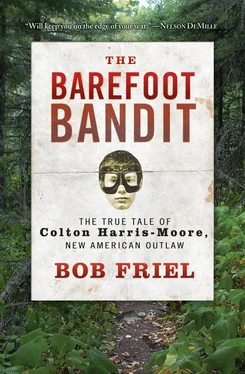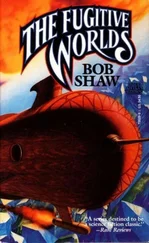No one had gotten hurt during the crime, but that wasn’t necessarily a factor for a juicy San Juans–style sin story. The county’s most famous misdeed to date had occurred in 1980, when a “kindly” old woman popped two .38 caps in her husband’s head, then had her simpleminded brother chop him up in a bathtub using a decorative battle ax before burning all the bits in a barrel.
In the spring of 2007, a body washed ashore on Orcas with its hands and feet missing. Since then, nine feet—all sans bodies—have shown up in the area’s waters from British Columbia down to Island County, making national headlines and prompting speculation of foot-fetish serial killers. The mordantly mundane reality is that people who jump off bridges or fall from boats or otherwise end up in the region’s rivers flow to the sea just like the trees that turn into the driftwood piled high on Northwest beaches. Hands and feet, like smaller branches on a floating tree, eventually come loose and the feet—usually shod in buoyant sneakers—sail off on their own journeys, eventually stepping back ashore to freak out beachcombers.
Our most recent headline-making incident occurred in March 2008, when we were treated to the electrifying work of a performance artist/eco-avenger named Gabriel Mondragon, who pulled on Playtex kitchen gloves and tried to cut one of Orcas’s power lines with a metal pole saw. His stated goal had been to wreak revenge on “rich white people” because a young orca whale had swum into a tugboat’s propeller 170 miles away in Canada. When the first lineman arrived, the anarchist’s pants were still smoking. He lost an arm, but survived.
While the occasional titillating crime or wayward body part added to island lore, the core belief on Orcas was that our wide moat of chilly Salish seawater stocked with giant Pacific octopuses and killer whales protected us from the horrifyingly random rapes, home invasions, and murders of the mainland. Bad guys knew it’d be stupid to commit a serious crime on a small island with very limited means of escape. Orcas residents enjoyed such a low crime rate and had such a comforting sense of security ingrained into their island identity that most of us never locked our doors—not cars, not homes, often not even businesses. When local sheriff’s deputies did shop-by-shop checks in Eastsound, our one little town, they regularly found open doors and windows.
A deputy once asked a young woman whose car had been taken (and quickly recovered) whether she’d left the keys inside. She replied, “Of course I did: I’m an island girl.”
There was crime on Orcas, but it occurred at such a remarkably low level that anyone who wanted to could easily persuade himself that he lived on an island embraced by only peace and serenity. Bobbing in a sea of denial.
HIGH CITY CRIME RATES didn’t drive my wife, Sandi, and I to Orcas, but as the little SUV that did slipped sideways down an icy road toward the Anacortes Ferry Terminal one cold January morning in 2007, a sense of safety and security was part of the overall flush of warmth that came when the calm sea and the islands appeared and we knew we were here for good.
We’d been living in Orlando (“Place Where Humidity Lives”), where I worked as the editor of Caribbean Travel & Life magazine. The position was intended as a short cash-replenishing pit stop in an otherwise freelance writing and photography career. Meeting Sandi convinced me to stay longer and buy a house on an oak-lined brick street in the downtown historic district. The 1917 bungalow had been listed as a unique fixer-upper opportunity. Its brass historic plaque was the only solid part of the structure, which remained standing despite the millions of termites that found its Craftsman architecture charming and its floor joists delicious.
It took more than a year to make the house livable. The night before we were to finally move in, I began to load up all my tools. I’d been hauling gear back and forth every day to a dingy garage apartment, just in case. But now why bother? We were going to be living in the house in eight hours. I left the tools in the bedroom.
When I showed up the next morning, everything was gone. Saber saw, circular saw, Sawzall, all gone. More tools, equipment, and a couple of bikes were missing from the garage. As I was calling the police, two guys inside a beater car pulled up the driveway, then immediately reversed out when they saw my truck behind the house. They’d come back to load up the rest of our stuff. I ran out of the house and into the street, but couldn’t get the plate number.
Two Orlando cops showed up four minutes after I called. They were very nice, and listened politely while I described the car and one of the guys I knew had ripped us off. He was a thirtyish downtown street stain who’d snuffled around whenever I was outside working on the house, giving me sob stories and asking if I had anything for him to do. A week before the burglary, I finally gave in and offered the guy ten bucks to help me haul a load of drywall into the garage.
He groaned like every piece he lifted was his last, then suddenly developed a limp and, when that didn’t faze me, a hacking cough. Inside the garage, he eyed the bikes and asked how much work it’d take for him to get one. Not for sale or trade, I said. Then he looked at the extension cords I had snaking around the yard and asked if I had any power tools. I gave him his ten and told him good-bye.
The cops hmmm ’d and ahhhh ’d at all the right spots during my tale, and even walked around the porch to look at the window the guy jimmied to get inside. When I bent down to show them the fingerprints clearly visible on the sill and asked if they were going to pull them, they both gave me pitying looks. One tore off a copy of the report, told me that’s what my insurance company wanted, and they left.
Ours was a relatively minor burglary, but it still cost thousands out-of-pocket to replace our stuff. I learned that one of the biggest aggravations is that if you’re not totally anal and haven’t itemized, cataloged, and place-mapped every single possession, you never know all that’s missing until you have reason to miss it. Where’s that antique drill my grandfather gave me? Did you see my college ring? That, though, was nothing compared to what that worthless hairbag did to our sense of security.
From the first night on, every creak of that very creaky old house might be him or one of his buddies coming back for more, or for worse. Obviously the crooks had been keeping tabs during the renovation and just waiting until there was enough loot to make breaking in worthwhile.
I made my living traveling, leaving town for about one week every month, seven nights when Sandi would have to come home to an empty house on a dark downtown lot where she could never be sure there wasn’t someone lurking. The thought of that pissed me off so much that every evening for two weeks after the burglary I walked the downtown streets with a pair of heavy work gloves in my back pocket—I didn’t want his blood literally on my hands when I beat the bogus tuberculosis out of him.
I never found him, but there wasn’t a single night spent in that house over the following six years when he wasn’t there in spirit, as the outside lights were turned on, the windows and doors double-checked, the new alarm armed, and the big dog put on duty.
WE BOUGHT PROPERTY ON Orcas Island after a single hearts-and-minds-winning visit in 2002. Each subsequent summer vacation was filled with our ideal outdoor lifestyle—kayaking, boating, scuba diving, hiking—and an expanding circle of local friends. Orcas became our sanctuary.
We’d wrap up last-minute job details, hassle through airports and across 2,600 cramped sky miles, battle the traffic up I-5 out of Seattle to the ferry terminal… and then exhale. The ferry ride offered a leisurely segue from mainland madness to the evergreen air of the San Juan Islands that demanded you take deep breaths. Some 750 islands, rocks, and reefs make up the San Juans. Ninety-seven of them have names, and Orcas has most of the superlatives: largest island, tallest mountain, deepest fjords. It’s a place where green meets blue, forests flow into the sea, and mountains climb into the sky, all within the intimate embrace of an island.
Читать дальше












